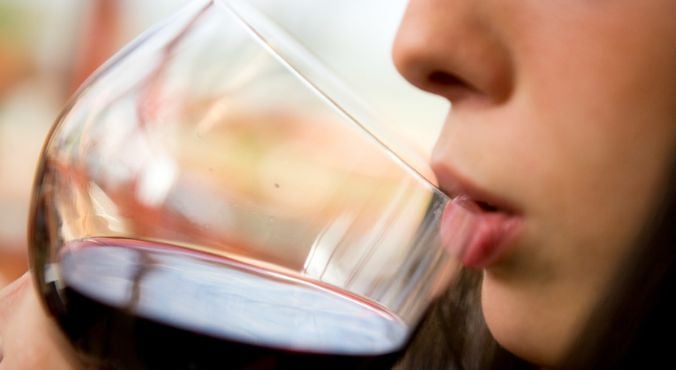
Image: iStock.
Those of us who suffer from ‘red wine teeth’ are easy to spot in a bar. We’re the ones contorting our lips to avoid direct wine-to-tooth contact; swishing water around our mouths between sips and trying to be subtle about it; or sporadically rubbing our fingers across our front teeth.
Yes, a night out is hard when your favourite drop turns your smile a weird shade of bluey-purple. According to Dr Peter Alldritt, Chairman of the Oral Health Committee at the Australian Dental Association, the reason some of us get more dramatic red wine teeth than others comes down to our enamel, which is slightly porous.
“The tannins, which are chemicals in the red wine, are actually absorbing into the surface of the enamel and they tend to take on this bluey, horrible colour,” he explains.
"Some people seem to be prone to it and others aren't. That would be a reflection of varying degrees of porosity in tooth enamel — in general, younger people are going to have more porous enamel than older people."
The good news: enamel gets harder as you get older, so it's likely to also become less porous over time (hurrah!). The bad news: if you've done any kind of tooth whitening recently, it could make your teeth more vulnerable to staining. Kind of ironic, wouldn't you say?
"Whitening toothpaste wouldn’t do it because they're not concentrated enough, but whitening strips or dentist-applied whitening gels tend to be strong enough to open up the porosity in your tooth enamel," Dr Alldritt explains.